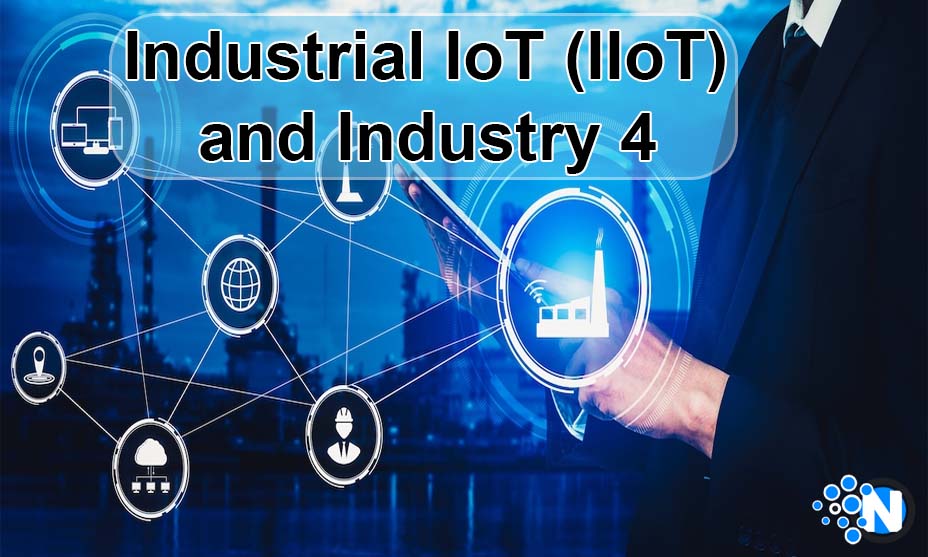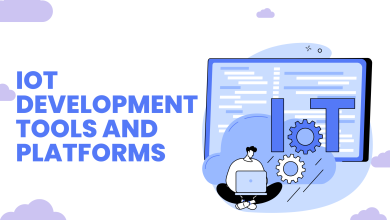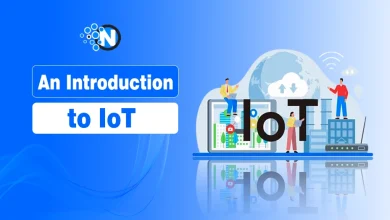Industrial IoT (IIoT) and Industry 4.0 – A Complete Guide

The evolution of technology and manufacturing has given rise to the Industrial Internet of Things and Industry 4.0. These two transformative concepts have gained significant importance in recent years because of their ability to streamline numerous operations. They can reshape industries by optimizing several critical processes and business operations. However, you must understand these two revolutions to get maximum perks out of it. If you are looking for a detailed guide to delve into key components, benefits, challenges, and their impacts, you are in completely right place. We have summarized all the data in this guide.
Understanding Industrial IoT (IIoT)
Industrial IoT (IIoT) is a comprehensive term that is used to describe interconnected devices, machines, and systems within an industry. Further, it covers numerous associated aspects, such as sensors, software, and connectivity to collect and exchange data. Then, it leverages the help of an Internet connection to improve decision-making and enable predictive maintenance.
Key Components of IIoT
The following are the main key components of Industrial Internet of Things. You must understand them to uncover their complete potential.
Sensors and Devices
IIoT mainly works with the help of sensors and devices embedded in machines and tools to capture data on temperature, pressure, vibration, and many more. Hence, they create the foundation for data collection.
Connectivity
IIoT systems use various communication technologies such as Wi-Fi, cellular data, and Bluetooth. Thus, you can transmit data from one device to another in quick sessions. Also, it ensures seamless communication between devices and central systems.
Cloud Computing

Data collected from IoT devices is often stored in cloud-based storage devices for analysis. Moreover, you can access it remotely from any device.
Data Analytics
Data analytics is another crucial component of the Internet of Things. Recently, advanced analytics tools and machine learning algorithms process the data and extract valuable insights for improved decision-making.
Security
Robust security measures are necessary for businesses to ensure robust security measures. As a result, they can protect against cyber threats and data breaches.
What is Industry 4.0?
Industry 4.0 is the representative of the fourth Industrial revolution, characterized by the integration of digital technologies in different processes, especially during manufacturing. IIoT forms its foundation, but it also incorporates automation and data exchange.
Key Components of Industry 4.0
Many factors play a crucial in the formulation of Industry 4.0. Some of them are described in the under-section.
- Cyber-Physical Systems (CPS): Cyber-physical systems are the main component of Industry 4.0. It combines various digital processes with physical systems. The primary examples are intelligent robots and autonomous vehicles.
- Big Data and Analytics: Another important factor of Industry 4.0 is big data and analytics, as it provides actionable insights to work more productively and efficiently.
- Artificial Intelligence (AI): AI and machine learning algorithms enable machines to learn, adapt, and make decisions to increase efficiency and reduce errors.
- Human-Machine Interaction: Industry 4.0 works on collaboration between machines and humans with the help of different technological assistance, including augmented reality and virtual reality.
- Horizontal and Vertical Integration: In Industry 4.0, the flow of information is in both horizontal and vertical directions. As a result, it can foster better coordination and decision-making.
Benefits of IIoT and Industry 4.0
Industrial Internet of Things and Industry 4.0 provides immense benefits and advantages in this fast-paced world, helping you take your company to another level of success. Some of the top points highlighting its benefits are detailed in the following section.
Enhanced Efficiency
IIoT, alongside Industry 4.0, is responsible for automating several hectic procedures to ensure efficiency in several critical steps. Moreover, it delivers insights regarding operational efficiency by providing real-time data on machinery performance. Hence, it enables proactive maintenance and optimizes resource allocation. This increased efficiency is highly blissful in this fast-paced world as you can complete necessary tasks well on time to stay ahead of the competition.
Cost Reduction
We previously described that the Industrial Internet of Things and Industry 4.0 help in the predictive maintenance of different tools and software used to carry out different processes. As a result, it reduces downtime and prevents costly breakdowns, significantly reducing your total expenditures. Above all, automation and AI-powered processes guarantee minimal labor costs and errors, boosting productivity and efficiency.
Improved Quality
The rise in the competition has given rise to several negative consequences. Companies are trying to produce a large quantity of products quickly to ensure constant delivery. Consequently, they are compromising on the quality. However, IIoT and Industry 4.0 enable continuous production process monitoring to ensure optimized product quality. Additionally, artificial intelligence determines the defects at an earlier stage, helping to redirect your manufacturing procedures.
Agility and Flexibility

Agility and flexibility are the major requirements to streamline various critical operations by accommodating the latest changes and updates. As a result, industries can adapt according to the marketing demands to reconfigure their production lines and prioritize tasks based on real-time data. In addition, both these factors play a widespread role in bringing success to companies.
Sustainability
Industrial Internet of Things and Industry 4.0 collaborate with each other to optimize different processes for minimal energy consumption. Hence, it supports sustainability by reducing waste and enabling environment-friendly practices. This approach is crucial to mitigate the energy crisis and sustain the industry’s position in the market.
Final Verdicts
Industrial IoT and Industry 4.0 offer numerous benefits and bring transformative shifts in the ways businesses operate and innovate their production. From increasing efficiency to cost reduction, these technologies deliver improved quality and sustainability to industries in this highly saturated landscape. However, they come with challenges that must be addressed as soon as possible to eradicate all the potential risks. With their evolution, IIoT and Industry 4.0 continue to shape the future of different industries, including healthcare, agriculture, logistics, and energy, helping them dominate their competitors.




